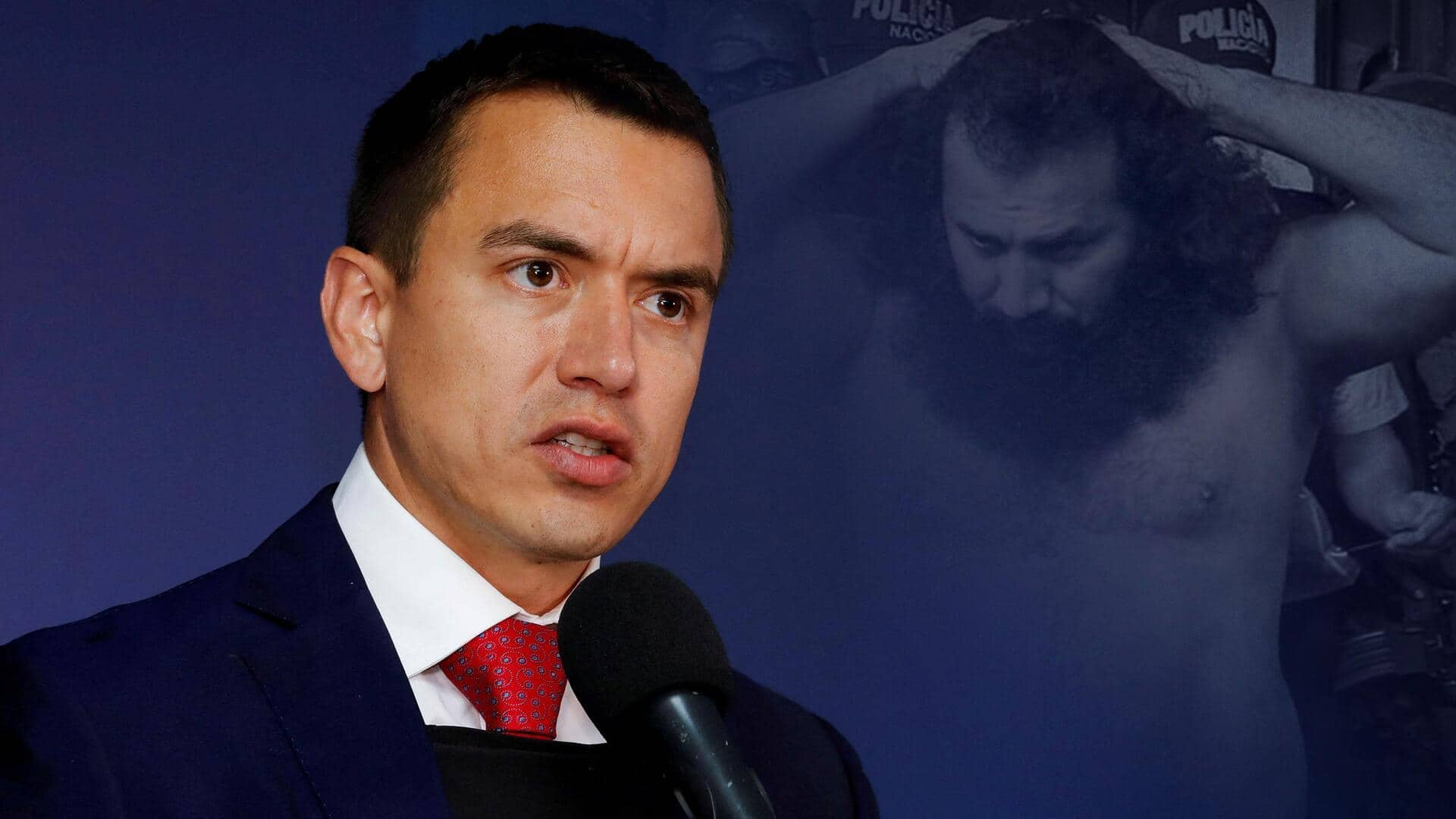
Ecuador declares state of emergency after drug lord's prison escape
What's the story
Ecuador has declared a state of emergency after an "extremely dangerous" druglord, Jose Adolfo Macias, aka "Fito," escaped from a maximum-security prison. President Daniel Noboa has declared a 60-day mobilization of soldiers across the country's streets and prisons. A nightly curfew has also been implemented as authorities intensify efforts to apprehend Fito, the leader of the Los Choneros gang. This move aims to give the armed forces the necessary support to fight "narcoterrorists."
Context
Why does this story matter?
Fito, serving a 34-year sentence for charges including organized crime, murder, and drug trafficking since 2011, escaped prison for the second time. His previous escape was in 2013, but he was recaptured within three months. However, following the assassination of presidential candidate Fernando Villavicencio in August 2023, Fito was moved to a maximum-security prison. President Noboa took the oath of office in November, pledging to enhance the country's safety and generate employment through urgent legislative reforms.
Details
Curfew from 11pm to 5am in Ecuador
According to the Ecuadorian president's statement, there will be a curfew in the South American country from 11:00pm to 5:00am daily. In a video message on Instagram, Noboa said that the state of emergency would give the armed forces "all the political and legal support" required to combat "narcoterrorists." "We will not negotiate with terrorists nor rest until we return peace to all Ecuadorans," he said.
What Next?
Full force of state deployed to find Fito: Official
Presidency spokesperson Roberto Izurieta said 44-year-old Fito is believed to have escaped hours before police arrived to inspect the prison in Guayaquil. He likely received a tip-off, he added. "The full force of the state is being deployed to find this extremely dangerous individual," Izurieta told local media. He also admitted that the prison system in Ecuador had failed. Separately, the prosecutor's office said it had launched an investigation and booked two prison authorities "allegedly involved" in Fito's escape.
Insights
Unrest in prisons after Fito's escape
Moreover, Fito's escape triggered unrest at penitentiaries in six of the country's 24 provinces on Monday, the national prison authority said. Guards were also taken hostage at some facilities, it added. Heavily armed police officers and soldiers entered prisons in the provinces of El Oro, Azuay, Loja, Chimborazo, Cotopaxi, and Pichincha. Later, the military shared images of half-naked prisoners rounded up in courtyards, AFP reported. The prison authority said there were no injuries reported due to the "incidents."
Details
Surge in violence in Ecuador in recent years
Once a peaceful country situated between major cocaine producers/exporters, Colombia and Peru, Ecuador has experienced a surge in violence in recent years. Rival gangs with connections to Mexican and Colombian cartels have been competing for control in the region. The battleground for gang wars is primarily within Ecuadorian prisons, where influential criminal leaders like Fito exert significant control. Since 2021, around 460 inmates have lost their lives in these conflicts, and frequently, their remains are discovered mutilated, decapitated, or burned.
Details
Noboa's promise to clamp down on violence
Noboa assumed office with promises to curb violence in the country. During his campaign, he advocated for establishing a distinct judicial system for severe crimes, border militarization with Colombia and Peru, and detaining the most violent criminals even on offshore barges. Recently, he unveiled his plans to build two new maximum-security similar to those set up by El Salvador's President Nayid Bukele. Bukele is known for his contentious anti-gang measures that significantly lowered the murder rate in his country.